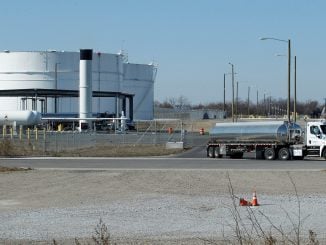In 2009, the Obama-Biden Administration broke a promise to the American people when it announced it would not seek to renegotiate NAFTA, one of the worst trade deals in American history. President Trump kept his promise, and the result is the new United States–Mexico-Canada Agreement (USMCA).
USMCA is great news for North Carolina’s nearly 500 auto parts companies located from Raleigh to Greensboro to Charlotte. The new deal raises the domestic content requirements for automobiles from 62.5% to 75%, and much of this production will be Made in North Carolina. That’s because tough labor and environmental provisions help level the playing field between the U.S. and Mexico.
North Carolina’s once thriving textile and furniture industries, decimated by NAFTA and Communist China’s accession into the World Trade Organization, also have reason to celebrate. Revised rules for sourcing threads and coat fabrics from North America will expand markets for North Carolinian producers. As an additional “Buy American” measure to benefit North Carolinian textile producers, all TSA uniforms must now be made in the U.S., in compliance with the Kissell Amendment.
USMCA also provides increased intellectual property protections for North Carolina’s robust medical device manufacturing industry and public health industrial base. This critical sector employs 9,000 workers and holds over 1200 patents statewide.
On the farming front, North Carolina is a national leader in tobacco, pork, and turkey production; and agriculture is North Carolina’s number one industry, generating nearly $92 billion in revenue annually.
Increased access through USMCA to the poultry and egg markets in Canada will benefit North Carolina’s $37 billion poultry industry made up of 150,000 workers. The state’s $10.6 billion dairy industry made up of over 500 dairy farmers in towns like Waynesville, Hillsborough, and Statesville will likewise benefit from a lowering of Canadian trade barriers.
And let’s not forget about the substantial benefits of the new U.S.-Japan Trade Agreement, signed in October of 2019. Japan is the United States’ greatest importer of pork products based on volume. The Japan deal lowers the tariffs on U.S. pork products, eventually phasing down to a zero percent rate. This will give giving additional market access to North Carolinian producers in communities like Smithfield, Elizabethtown, and Goldsboro.
North Carolina’s 485,000 farmers have also been helped by critical Trump deregulation efforts. For example, the Trump Administration has repealed the disastrous Obama-Biden 2015 Waters of the United States rule that overregulated North Carolina’s ditches, potholes, and farm ponds. This action grants farmers from in communities like Wilmington, Jacksonville, and Asheville[xiii] significant additional access to their waters.
Finally, if we have learned anything from the deadly virus from Communist China, it is that we must onshore the production of our essential medicines and medical supplies and equipment. To that end, President Trump’s Essential Medicines Executive Order imposing strict Buy American rules on government agencies will spur additional investments in domestic pharmaceutical manufacturing in North Carolina. The Tar Heel state already is the nation’s leader in bio and pharma manufacturing with over 61,000 employees and more than 600 companies.
It should be clear that President Trump’s pro-manufacturing policies and tough trade negotiations are you have the op-ed working for the farmers, manufacturers, and scientists of North Carolina. It should be equally clear that President Trump believes all job creation is local.
Peter Navarro is the Assistant to the President for Trade and Manufacturing Policy. To read the complete Jobs Plan for North Carolina report, please visit the White House website at https://www.whitehouse.gov/wp-content/uploads/2020/10/OTMP-North-Carolina-Report.pdf



